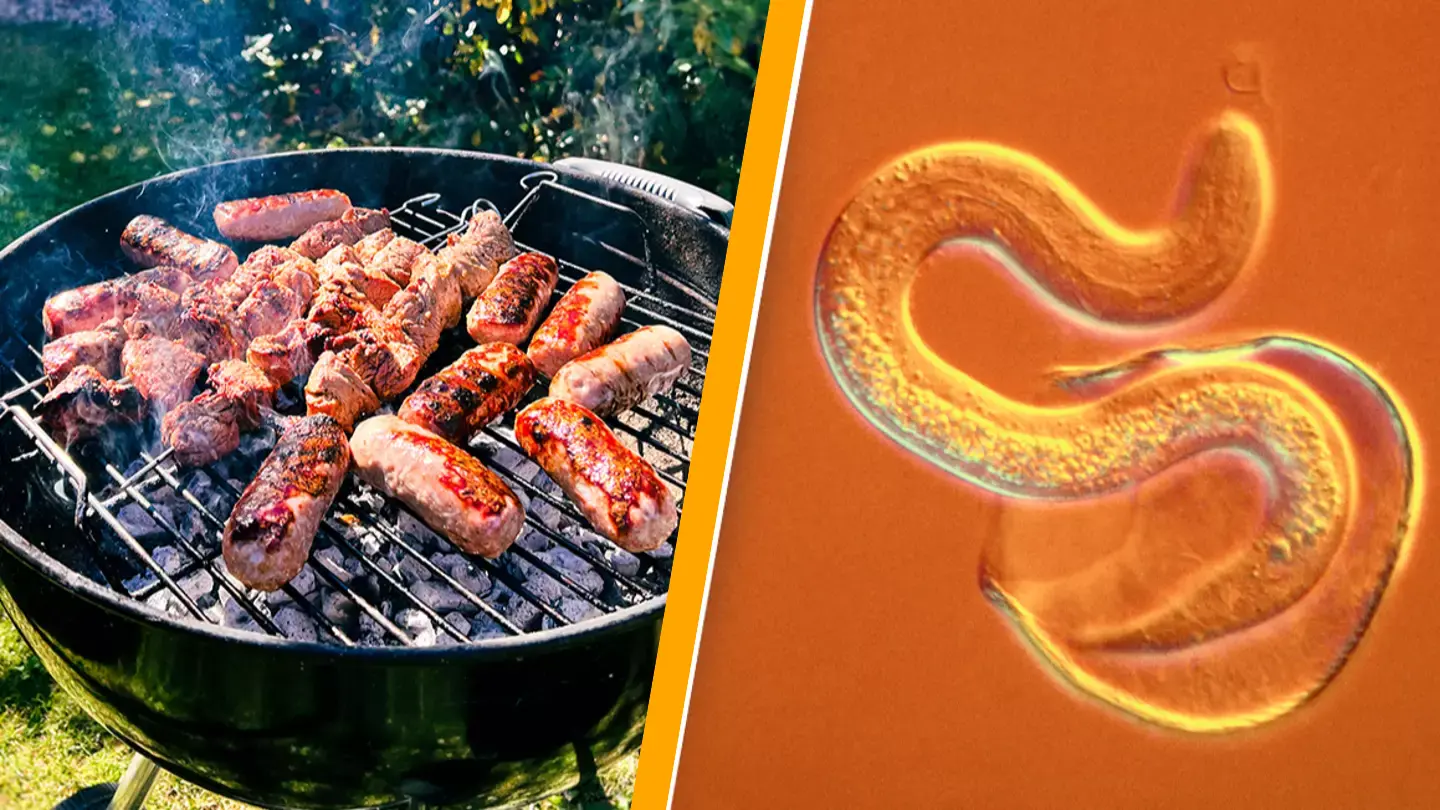A health advisory has been issued by a public health department after individuals fell ill with a rare parasite following the consumption of undercooked meat at a barbecue event.
In November of the previous year, a gathering of 34 individuals took place in western North Carolina for a barbecue.
Shortly after the event, 10 attendees started feeling unwell and displayed concerning symptoms.
An October 10, 2024 report from the Centers for Disease Control and Prevention (CDC) disclosed that 22 of the 34 attendees confirmed having eaten undercooked meat, specifically bear meat.
Of the 10 individuals who reported symptoms, nine experienced facial swelling, six suffered from muscle pain (myalgia), and four had a fever.
Five of these individuals were later diagnosed with a rare parasitic illness known as Trichinellosis.

The CDC states: “Trichinella spp. nematodes are complex life cycle parasites that can cause trichinellosis (also called trichinosis) when humans consume undercooked or raw meat harboring dormant larvae.”
Although the disease is uncommon in the United States due to changes in pig farming practices, recent cases have been linked to the consumption of wild game meat. Another outbreak in 2022 resulted in six cases of trichinellosis after individuals ate undercooked bear meat, despite two patients only consuming vegetables.
The CDC warns: “Signs and symptoms include myalgia and fever in 54 percent of cases and facial swelling in 42 percent. Timely identification is important because trichinellosis can be severe; 0.2 percent of cases are fatal.”
Despite only five individuals testing positive for the disease, the CDC notes: “Confirmatory diagnosis requires additional testing of convalescent samples, and none of those receiving testing returned for convalescent serum testing. No bear meat was available for laboratory testing.”
Consequently, all 10 individuals are considered ‘probable cases’ of the parasite, with the majority receiving antihelminth medication, which is used to treat parasitic infections.

The CDC advises local health departments and wildlife management to promote safe preparation practices for wild game meat, as it is the most effective method to prevent trichinellosis.
It adds: “Diagnostic antibody tests might have poor accuracy, and treatment costs can be substantial,” cautioning of the potential difficulties in diagnosis and financial burden of treatment.
For those considering hunting and cooking bear meat, the CDC recommends: “Cooking wild game meat to an internal temperature ≥165°F (≥74°C) is necessary to kill Trichinella spp. parasites.”

